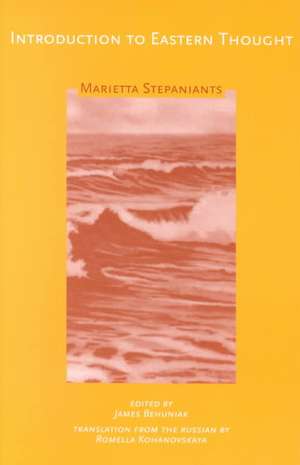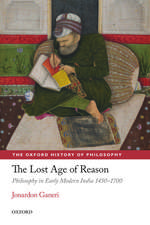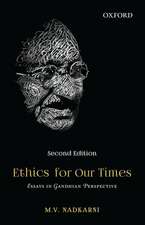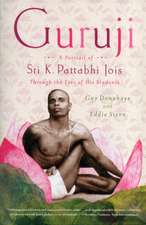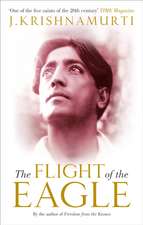Introduction to Eastern Thought
Autor Marietta Stepaniantsen Limba Engleză Paperback – 30 apr 2002
Preț: 491.07 lei
Nou
Puncte Express: 737
Preț estimativ în valută:
94.01€ • 96.74$ • 79.24£
94.01€ • 96.74$ • 79.24£
Carte tipărită la comandă
Livrare economică 28 februarie-14 martie
Preluare comenzi: 021 569.72.76
Specificații
ISBN-13: 9780742504349
ISBN-10: 0742504344
Pagini: 400
Dimensiuni: 149 x 228 x 20 mm
Greutate: 0.49 kg
Ediția:0400
Editura: Rowman & Littlefield
ISBN-10: 0742504344
Pagini: 400
Dimensiuni: 149 x 228 x 20 mm
Greutate: 0.49 kg
Ediția:0400
Editura: Rowman & Littlefield
Notă biografică
Marietta Stepaniants is the Director of the Center for Oriental Philosophies Studies at the Institute of Philosophy, Russian Academy of Sciences where she has been working since 1959. She is the author of ten books including Islamic Philosophy and Social Thought: 19th-20th Centuries, Sufi Wisdom, Gandhi and the World Today. Among more than 20 volumes edited by her: Rationalistic Tradition and Modernity. In 3 volumes, History of of Indian Philosophy: A Russian Viewpoint, Feminism: East-West-Russia, Democracy and Justice: A Cross-cultural Perspectives. Her writings have been translated and published in eighteen countries. For 15 years Dr. Stepaniants was a professor of the Diplomatic Academy; in recent years, she has been Chair of Oriental Philosophies at the Russian State University of Humanities (Moscow). Dr.Stepaniants has played a key role in developing comparative studies in Russia. She was the Director for 7th & 8th East-West Philosophers' Conferences in Honolulu and is a corresponding member of the editorial board of a number academic journals, including Philosophy East and West , Social Sciences Research Journal.
Cuprins
Part 1 One: Interpretive Essays Chapter 2 1. The Birth of Philosophy Chapter 3 2. The Universe: Its Origins and Structure Chapter 4 3. Human Nature Chapter 5 4 . In Search of the Truth Chapter 6 5. Tradition and Modernity Part 7 Two: Sources Chapter 8 6. Indian Tradition Chapter 9 The Svetasvatara-upanisad Chapter 10 The Bhagavadgita Chapter 11 The Questions of King Milinda Chapter 12 The Acaranga Sutra Chapter 13 The Sarva-Darsana-Samgraha Chapter 14 Isvarakrsna's Samkhyarika Chapter 15 The Yoga Vasistha Chapter 16 The Nyaya-Sutras of Vatasyayana Chapter 17 The Vaisesika-Sutras of Kanada Chapter 18 The Brahma-Sutra-Bhasya of Sankara Chapter 19 The Common Bases of Hinduism Chapter 20 7. Chinese Tradition Chapter 21 Analects Chapter 22 The Book of Mencius Chapter 23 Tao Te Ching Chapter 24 ChuangTzu Chapter 25 Universal Love Chapter 26 The Recorded Conversations of Zen Master I-Hsuan Chapter 27 Fragments from the Complete Works Chapter 28 Inquiry on the Great Learning Chapter 29 Hsin li-hsueh Chapter 30 8. Muslim Tradition Chapter 31 Risala fi istihsan al-khawd fi 'ilm al-kalam Chapter 32 Fusul al-madani Chapter 33 Danish Nama Chapter 34 Tahafut al-falasifah Chapter 35 Fusus al-hikam Chapter 36 Al-Muqaddimah Chapter 37 The Reconstruction of Religious Thought in Islam
Descriere
Shows how Eastern thought has dealt with Western contact in the 19th and 20th centuries. Suitable for students familiar with Western philosophy, this book also shows how Indian, Chinese and Islamic traditions responded to these questions: How did philosophy arise? What is the origin of order in the universe? What is human nature? What is truth?
